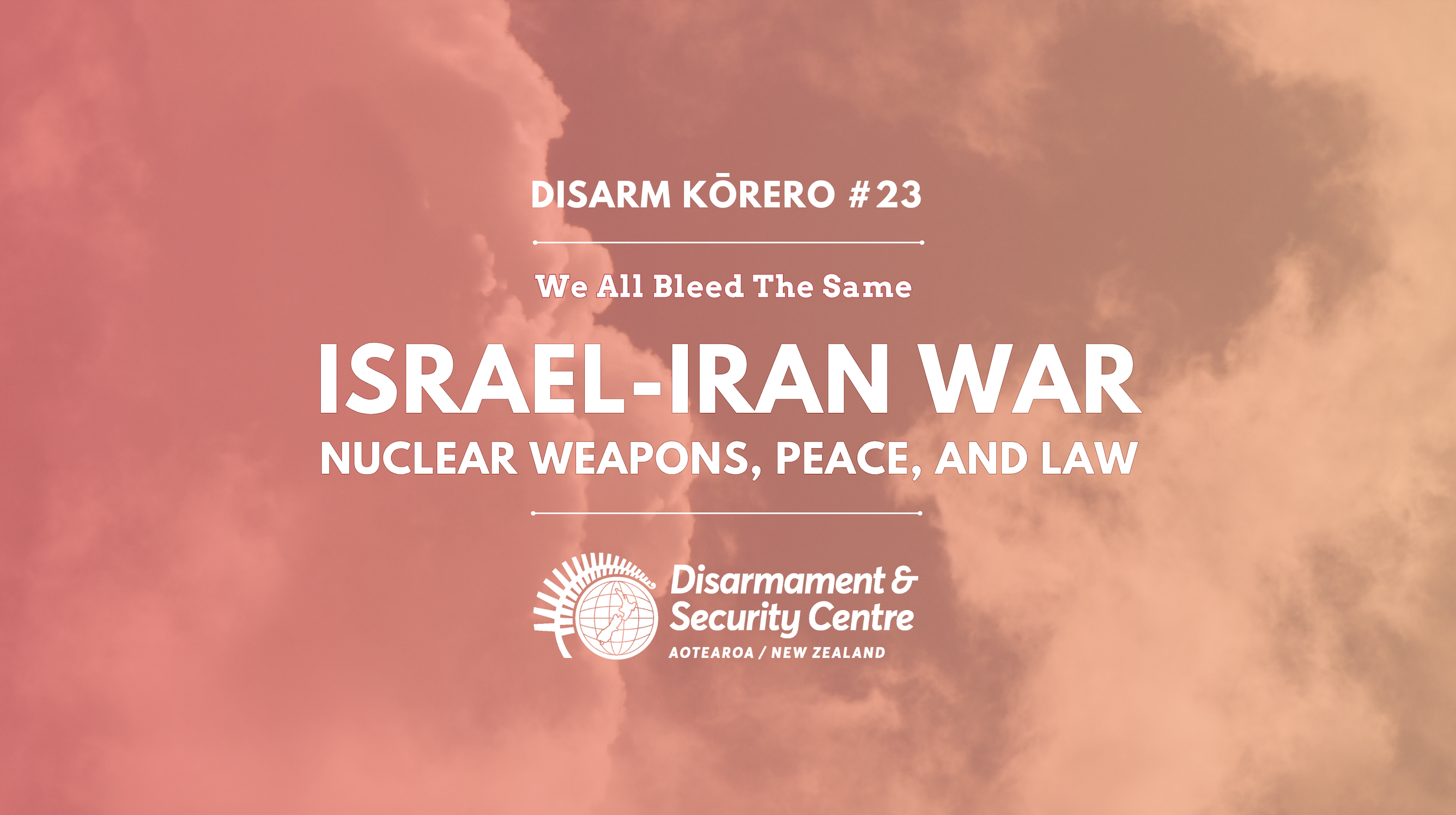
Our 23rd Disarm Kōrero, 'We All Bleed the Same' drew approximately 40 participants and spurred some great discussion and feedback. This kōrero focussed on the recent escalation between Israel, Iran, and the United States, with a strong emphasis on diplomacy over military action and the urgent need to prevent further violence.
Professor Treasa Dunworth of the University of Auckland's Faculty of Law, chaired the kōrero, and welcomed our speakers––two learned scholars who call Aotearoa home, Dr Zahra Emamzadeh and Dr Daniel Fridberg, from Iran and Israel, respectively. They provided insightful analysis of the complex dynamics at play, including the human toll of the conflict in both Israel and Iran, violations of international law, and the broader landscape of violence in the Middle East, particularly the ongoing genocide being carried out by Israel in Gaza.
Dr Emamzadeh highlighted the human cost of the conflict for Iran, with over 1000 civilians deaths from Israeli military strikes. She pointed to the glaring double standards, where two nuclear-armed states, the United States and Israel, bypass international law to justify preemptive strikes against Iran in the name of preventing nuclear proliferation. Her presentation challenged participants to reflect on the unequal enforcement of global norms, particularly given Israel's rejection of the Non-Proliferation Treaty and refusal to allow any international inspections of its nuclear facilities. She also acknowledged there are aspects of the Iranian government's policies which are worthy of scrutiny, but stated that none of these warrant any strikes by another state against Iranian civilians and infrastructure. Her presentation underscored the broader suffering in the region, in Lebanon, Syria, and the Palestinian Territories, and called attention to the unequal treatment of states and peoples by countries which claim to uphold international law.
Dr Fridberg explored the deep internal divisions within Israeli society and the Jewish disaspora, observing how extremist forces have gained ground by uniting their publics through fear and external threats. He challenged the audience to think beyond questions of land and sovereignty and instead consider shared spaces and coexistence as the only long-term strategy for peace. Drawing on Aotearoa New Zealand’s history, particularly Te Tiriti o Waitangi, he suggested that historical narratives can be reimagined to serve peace rather than justify endless conflict between peoples.
The kōrero closed with a clear message: to stop further violence and ensure that nuclear proliferation is only achieved through diplomatic, not military, means. Long-term peace, the speakers noted, is dependent on rejecting simplistic narratives of Israel, Iran, and Palestine, and engaging in respectful, informed dialogue.
At the speakers' request, we have made the recording of this kōrero available upon request. Please contact us if you would like to view this. Read the Disarmament and Security Centre's statement on the Israel-Iran Conflict here.